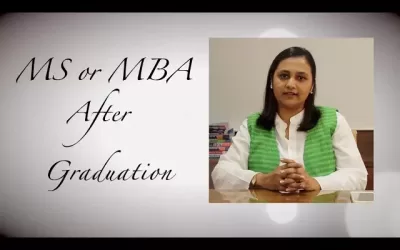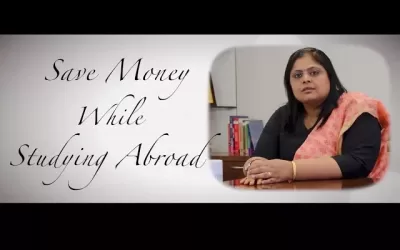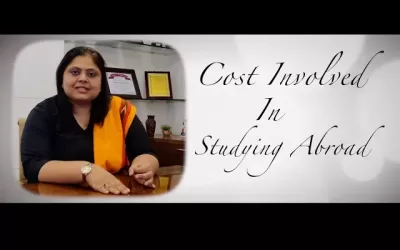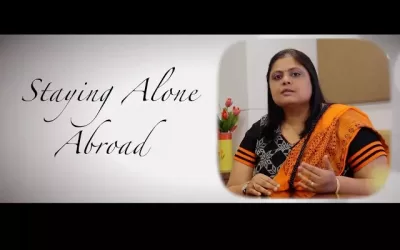Studying abroad is a thrilling experience that provides an abundance of chances for both academic and personal enhancement. It’s an opportunity to venture outside your comfort zone, fully immerse yourself in a foreign culture, and acquire priceless life lessons. This go-to guide will take you through every stage of the journey, whether you’re a college student looking to expand your horizons or a high school student daydreaming of traveling to far-off places.
Benefits of Studying Abroad
Studying abroad isn’t just about earning credits, going away from your family, or a status symbol. It’s about expanding your worldview, discovering new passions, and building lifelong memories. Here are some of the key benefits:
- Academic enrichment: learning from different points of view, expanding your intellectual horizons, and experiencing subjects in a fresh setting are all made possible by studying abroad. The vast array of majors, specializations, and electives, as well as the international faculty and cohort, make the whole learning experience exciting and enriching.
- Career Opportunities: Employers highly value knowledge and skills gained from studying abroad, such as global awareness, adaptability, and cross-cultural communication, which improve your position in the job market.
- Personal Growth and Development: Living abroad compels you to grow as an independent, resilient person who can adapt and communicate across cultural divides.
- Cultural Immersion: Studying abroad enables you to fully immerse yourself in a new culture and better understand its customs and traditions through activities like eating local food and participating in traditional festivals.
Choosing the Right Program
Before embarking on your study abroad journey, it’s essential to research and choose the right program for you. Try answering the following questions:
- Program Duration: Do I want to spend a semester, a year or two years, or just a few weeks abroad?
- Location: Am I drawn to any particular nation or area? This may include variables like language, weather, and cultural attractions.
- Academic Offerings: Does the program offer courses that align with my academic interests and goals?
- Language Requirements: Do I prefer programs taught in English, or am I comfortable studying in a foreign language?
- Financial Considerations: Studies? What is the program’s total cost, including tuition, housing, meals, and travel expenses? What’s my budget, and how do I fund my studies? Should I take a loan or hope for a scholarship?
Preparing for Your Study Abroad Experience
Once you’ve selected a program, it’s time to start preparing for your adventure. This includes:
- Obtain Necessary Travel Documents: Ensure you have a valid passport and any required visas well before your departure date.
- Arrange Housing Accommodations: Research your housing options, whether dormitories, homestays, or apartments, and make arrangements accordingly.
- Manage Finances and Budgeting: Create a budget for your time abroad, including expenses for tuition, housing, meals, transportation, and leisure activities.
- Cultural Sensitivity and Language Preparation: Take the time to learn about your host country’s customs, traditions, and cultural norms, and consider taking language courses to improve your communication skills.
Navigating Through Differences:
Living and studying in a foreign country can be both exciting and challenging. Here are some tips for navigating cultural differences:
- Understand Cultural Norms and Etiquette: Take the time to observe and learn about your host country’s customs and social norms, and be respectful of cultural differences.
- Overcome language barriers: Be bold, practice your language skills, and ask for help when needed. Most people will appreciate your efforts to communicate in their language.
- Build Relationships with Locals: Seek out opportunities to engage with residents, whether through cultural events, community service projects, or social gatherings.
- Cope with Culture Shock: It’s normal to experience culture shock when living in a new country. Stay open-minded, be patient with yourself, and seek support from fellow students, advisors, or counselors if needed.
- Adapting to New Food Habits Abroad: Adjusting to new food habits abroad can be both exciting and challenging. Embracing local cuisine while accommodating dietary preferences or restrictions requires openness and flexibility. Exploring diverse flavors and ingredients fosters cultural immersion and enriches the overall experience of traveling.
Maximizing Your Academic Experience
Make the most of your time abroad by fully engaging in your academic pursuits.
- Engage in Coursework and Academic Activities: Take advantage of unique academic opportunities, such as field trips, research projects, and guest lectures.
- Participate in Research Projects or Internships: Get practical experience in your subject of study by participating in research projects or internships with nearby companies or organizations.
- Take Advantage of Extracurricular Opportunities: Join clubs, sports teams, or volunteer organizations to meet new people and explore your interests outside the classroom.
- Earn Academic Credit and Transfer Credits: Work closely with your academic advisor to ensure that the courses you take abroad will transfer back to your home institution and fulfill degree requirements.
- Remain open and adaptable. Welcome to new teaching styles, academic methodologies, and perspectives that may diverge from your usual experience. Cultivate a mindset of openness and flexibility to adjust to various academic settings and learning approaches.
- Maximize Academic Opportunities: Make full use of the academic resources available to you, including libraries, research centers, and language courses. Engage actively in academic seminars, workshops, and conferences to expand your expertise and connect with fellow scholars within your discipline.
Exploring Your Host Country
Studying abroad is not just about academics but also exploration and adventure. Here are some ways to make the most of your time abroad:
- Plan Travel Excursions and Cultural Experiences: Utilize the weekends and holidays to visit neighboring cities, sites, and cultural hotspots.
- Immerse Yourself in Local Customs and Traditions: Participate in traditional festivals, attend cultural performances, and learn about the history and heritage of your host country.
- Explore Historical Sites and Landmarks: Visit museums, monuments, and historical sites to learn about your host country’s rich history and cultural heritage.
- Participate in Volunteer or Community Service Projects: Give back to the community by volunteering with local organizations or participating in community service projects.
Reflecting on Your Study Abroad Experience
As your study abroad journey comes to an end, take time to reflect on your experiences:
- Document Your Experiences: Keep a journal or blog to document your thoughts, feelings, and experiences while studying abroad.
- Share Insights and Stories: Share your study abroad experiences with friends, family, and fellow students to inspire others and foster cultural exchange.
- Integrate Lessons Learned: Consider the knowledge you gained from your study abroad experience and how it will influence your future academic and personal objectives.
- Plan Future Travel or Academic Pursuits: Make the most of your time studying abroad by using it as a launching pad for future travel and study abroad possibilities.
 Studying overseas is an excellent opportunity to broaden your horizons, experience new things, and find passions. Accepting the chances and challenges that come with living abroad will help you make lifelong memories, acquire valuable skills, and have tremendous respect for the diversity and beauty of our planet. Pack your bags, embark on this transformative journey, and prepare to witness the globe in a whole new light. Remember, studying abroad is more than just visiting new places; it’s about the rich tapestry of experiences, connections, and revelations that shape your path. Live in the moment, cherish each encounter, and let the world be your classroom.
Studying overseas is an excellent opportunity to broaden your horizons, experience new things, and find passions. Accepting the chances and challenges that come with living abroad will help you make lifelong memories, acquire valuable skills, and have tremendous respect for the diversity and beauty of our planet. Pack your bags, embark on this transformative journey, and prepare to witness the globe in a whole new light. Remember, studying abroad is more than just visiting new places; it’s about the rich tapestry of experiences, connections, and revelations that shape your path. Live in the moment, cherish each encounter, and let the world be your classroom.
Frequently Asked Questions About Studying Abroad
1. What are the benefits of studying abroad?
Studying overseas offers many benefits, including academic enrichment, career opportunities, personal growth, and cultural immersion. It’s a transformative experience that broadens your worldview and builds lifelong memories.
2. How can studying abroad enhance my academic experience?
Studying abroad exposes you to new perspectives, teaching styles, and academic methodologies that enrich your learning experience. It offers diverse courses, international faculty, and unique academic opportunities that broaden your intellectual horizons.
3. What factors should I consider when choosing a study-abroad program?
When selecting a program, consider program duration, location, academic offerings, language requirements, and financial considerations. Choose a program that aligns with your academic interests, personal preferences, and budgetary constraints.
4. How can I prepare for my study abroad experience?
Prepare for your study abroad adventure by obtaining necessary travel documents, arranging housing accommodations, managing finances, and familiarizing yourself with your host country’s customs and language. Planning and staying organized are essential to ensuring a smooth transition.
5. What challenges might I encounter while studying abroad?
Living and studying in a foreign country can pose challenges such as cultural differences, language barriers, and homesickness. However, these challenges offer valuable opportunities for personal growth, resilience, and cultural adaptation.
6. How can I navigate cultural differences while studying abroad?
To effectively navigate cultural differences, take the time to understand and respect the customs, norms, and etiquette of your host country. Build relationships with locals, overcome language barriers, and seek support from fellow students and advisors.
7. What academic opportunities are available while studying abroad?
While studying abroad, you can engage in coursework, research projects, internships, extracurricular activities, and cultural experiences that enrich your academic experience. Take advantage of unique opportunities to expand your knowledge and skills.
8. How can I maximize my time abroad outside of academics?
Outside of academics, make the most of your time abroad by exploring your host country, participating in cultural experiences, volunteering in the community, and reflecting on your experiences. Embrace the adventure, and seize every opportunity for personal growth and exploration.
9. What should I do to document and reflect on my study abroad experience?
Keep a journal, blog, or photo diary to document your thoughts, feelings, and experiences while studying abroad. Share your insights and stories with others to inspire cultural exchange and integrate lessons learned into future endeavors.
10. How can studying abroad shape my future academic and career pursuits?
Employers and universities highly value the skills that studying abroad gives you, such as global awareness, adaptability, and cross-cultural communication. It opens doors to new opportunities and enriches your academic and professional journey.
11. What advice do you have for students considering studying abroad?
Embrace the opportunity to study abroad with an open mind and an adventurous spirit. Be proactive in researching programs, preparing for your experience, and navigating challenges. Above all, cherish every moment and make the most of this transformative journey.
12. How can I stay connected with my home country while studying abroad?
Stay connected with your home country by keeping in touch with friends and family through video calls, social media, and emails. Share your experiences with loved ones and maintain a connection while embracing your new adventure abroad.
13. What resources are available to support students studying abroad?
Universities and study abroad programs offer various resources, such as academic advisors, cultural orientation sessions, counseling services, and peer support groups, to assist students throughout their study abroad journey. Don’t hesitate to reach out for help when needed.
14. How can I make meaningful connections with locals while studying abroad?
Make meaningful connections with locals by participating in cultural events, joining community service projects, and engaging in social activities. Be open-minded, respectful, and willing to learn from others’ perspectives to foster authentic relationships.
15. What can I do to combat homesickness while studying abroad?
Combat homesickness by staying connected with friends and family, maintaining familiar routines, and exploring your host country’s attractions and activities. If feelings of homesickness persist, seek support from fellow students, advisors, and counselors.
16. How can I manage my finances while studying abroad?
Manage your finances while studying abroad by creating a budget, tracking expenses, and exploring scholarship, grant, or financial aid opportunities. Be mindful of exchange rates, banking fees, and local cost-of-living expenses to avoid overspending.
17. What cultural etiquette should I be aware of while studying abroad?
Be aware of cultural etiquette, such as greeting customs, dining etiquette, and gestures of respect in your host country. Take the time to observe, learn from the locals, and respect cultural differences to foster positive interactions.
18. How can I maximize travel opportunities while studying abroad?
Make the most of travel opportunities by planning weekend excursions, exploring nearby cities and landmarks, and immersing yourself in your host country’s rich history and culture. Keep an open mind and embrace every opportunity for adventure and discovery.
19. What should I do if I encounter academic or personal challenges while studying abroad?
If you encounter academic or personal challenges while studying abroad, don’t hesitate to seek support from your academic advisor, program coordinator, or counseling services. They can offer guidance, resources, and assistance to help you navigate difficult times.
20. How can studying abroad impact my perspective on the world?
Studying abroad broadens your perspective on the world by exposing you to new cultures, ideas, and experiences. It fosters empathy, tolerance, and appreciation for diversity, shaping you into a more globally-minded and culturally aware individual.
Relevant Resources:
- StudyAbroad.com offers comprehensive guides, articles, and resources for students considering studying abroad, including program directories and destination guides.
- GoOverseas.com provides reviews, tips, and advice from students who have studied abroad, along with program listings and destination guides.
- Institute of International Education (IIE): Offers research, reports, and resources on international education trends and opportunities, including scholarships and grants for studying abroad.
- U.S. Department of State, Study Abroad: Provides information on travel advisories, passport and visa requirements, and safety tips for students studying abroad.
- EducationUSA offers guidance and resources for international students planning to study in the United States, including information on visas, scholarships, and academic programs.
- GoAbroad.com offers a database of study abroad programs, volunteer opportunities, internships, and language courses worldwide, along with articles and advice for prospective travelers.
- Cultural Vistas provides internship and exchange programs for students and professionals in various fields, along with resources for cultural immersion and language learning.
- IES Abroad offers study abroad programs in over 20 countries, along with resources for academic planning, cultural adjustment, and career development.
- The Forum on Education Abroad provides resources and best practices for institutions and organizations involved in education abroad, including research publications and professional development opportunities.
- StudyPortals offers a search engine for finding study abroad programs worldwide, along with information on scholarships, visas, and student reviews of programs and institutions.
- The Council on International Educational Exchange (CIEE) provides study abroad programs, internships, and language immersion opportunities, along with resources for academic advising and cultural exchange.
- Go Overseas – Study Abroad Programs offers a platform for comparing and reviewing study abroad programs, along with articles, guides, and resources for prospective students.
- The University of California Education Abroad Program (UCEAP) offers study abroad opportunities for University of California students, along with resources for academic planning, scholarships, and cultural adjustment.
- The New York Times, Education Abroad, publishes articles, opinion pieces, and resources on studying abroad, including student experiences, destination guides, and tips for navigating international education.
- Association of International Educators (NAFSA) – Provides resources, professional development opportunities, and advocacy for international educators and students, including research publications and conference proceedings.
- The Guardian – Higher Education Study Abroad, publishes articles, news, and features on studying abroad, including student perspectives, destination profiles, and tips for academic success.
- Education Abroad Network (TEAN): Offers study abroad programs, internships, and cultural immersion experiences in Asia Pacific countries, along with resources for academic planning and career development.
- The Telegraph, Education Abroad, publishes articles and guides on studying abroad, including destination highlights, academic program reviews, and advice for prospective students.
- The Princeton Review – Study Abroad offers information and advice on studying abroad, including program rankings, student reviews, and test preparation resources.






